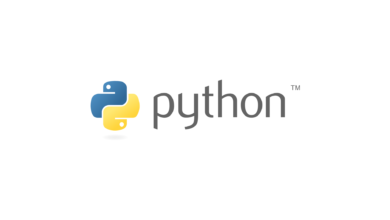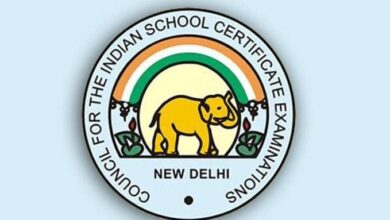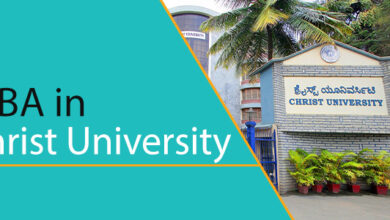The Value of Liberal Education in Today’s Job Market

[ad_1]
The job market today is constantly evolving, and employers are always on the lookout for employees with the right skills and qualifications to meet their needs. With the increasing demand for technical and specialized skills, some may question the value of a liberal education in today’s job market. However, a liberal education is still a valuable asset for job seekers, providing them with skills that are highly sought after in today’s job market. Many students and their parents are concerned about whether a liberal education provides the necessary skills and knowledge to succeed in today’s job market. However, the answer is clear: a liberal education is more valuable than ever. As the job market becomes increasingly competitive, job seekers are faced with the challenge of finding ways to stand out from the crowd. In this context, the value of liberal education cannot be overstated. A liberal education emphasizes critical thinking, creativity, and effective communication, and provides students with a broad-based education that prepares them for a wide range of career paths
In this article, you will explore the value of liberal education, the skills that it provides, and how it prepares students for success in their careers.
What is Liberal Education?
Liberal education is a broad-based education that emphasizes critical thinking, creativity, and effective communication. Liberal education allows individuals to develop a broad understanding of various subjects, including humanities, arts, social sciences, and natural sciences. It is not focused solely on technical skills but rather teaches students how to think and solve problems critically. A liberal education equips students with a broad range of skills that are highly valuable in today’s job market. According to a report by the Association of American Colleges and Universities (AAC&U), liberal education is “an approach to learning that empowers individuals and prepares them to deal with complexity, diversity, and change.”
Are Liberal Arts Graduates Qualified for High-Grade Jobs?
Employers are looking for liberal arts graduates. A liberal education provides students with the opportunity to develop these skills through courses that emphasize critical thinking, effective communication, and problem-solving. Students in liberal arts programs learn how to analyze and interpret information, communicate effectively with others, and work collaboratively to solve complex problems. These skills are highly valued in today’s job market, making liberal arts graduates highly sought after by employers.
According to a survey conducted by the Association of American Colleges and Universities (AACU), employers are looking for employees who possess a broad range of skills, including critical thinking, communication, and problem-solving skills. In fact, 94% of employers surveyed stated that they would be more likely to hire a candidate who possessed these skills, regardless of their major. A liberal education provides students with the opportunity to develop these skills through courses that emphasize critical thinking. Students in liberal arts programs learn how to analyse and interpret information, communicate effectively with others, and work collaboratively to solve complex problems. These skills are highly valued in today’s job market, making liberal arts graduates highly sought after by employers.
Where Will a Career in Liberal Arts Take You as a Professional?
The Road map of Career in Liberal Arts is quite simple and does not need much explanation. A liberal arts degree provides students with a broad education that allows them to pursue a wide range of career paths. It also prepares students for graduate studies, making it an excellent choice for those who wish to pursue advanced degrees in fields such as medicine or business. A liberal arts degree provides students with a strong foundation in critical thinking, communication, and problem-solving skills, which are essential for success in graduate-level studies.
Many liberal arts graduates choose to pursue careers in fields such as education, law, business, non-profit, and government. Additionally, a liberal arts education provides students with the skills necessary to adapt to new situations and learn new skills quickly. This flexibility makes liberal arts graduates highly adaptable to a variety of careers and industries. A liberal arts degree provides students with a strong foundation in critical thinking, communication, and problem-solving skills, which are essential for success in graduate-level studies. Not only does this inculcate street-smartness, but also enhances the student’s perspective and the way they use to navigate their career paths.
The Value of a Liberal Education in Today’s Job Market
And now for the main event.
In today’s job market, liberal education is more valuable than ever. The skills learned through a liberal education, such as critical thinking, communication, and problem-solving, are highly sought after by employers. According to a report by Glassdoor, liberal arts graduates earn an approximate average of 6.5-8 lakh rupees a year at their initial jobs, which is only slightly lower than the average earnings of graduates in STEM fields. Furthermore, a report by Georgetown University Center on Education and the Workforce found that liberal arts graduates are highly employable, with a lower unemployment rate than graduates in many other fields.
A liberal arts education also provides students with a strong foundation in ethical and moral reasoning, which is essential for success in today’s business world. As businesses become more globalized, the ability to navigate cultural differences and work effectively with individuals from diverse backgrounds is becoming increasingly important. A liberal education equips students with the skills necessary to succeed in today’s globalized business world.
A liberal education fosters creativity and innovation, which are essential for success in today’s job market. Many of the world’s most successful entrepreneurs and business leaders have liberal arts backgrounds. Steve Jobs, the co-founder of Apple, had a background in calligraphy and design, which he credits with influencing the design of Apple’s products. There are many other people who have had their fair share of help in making it in the world – help that was given to them only after exposure to the liberal arts.
Conclusion
In conclusion, a liberal education provides students with a broad range of skills that are highly valued in today’s job market. Employers are seeking individuals who possess critical thinking, communication, and problem-solving skills, and liberal arts graduates possess these skills. Additionally, a liberal arts degree provides students with a roadmap for a wide range of career paths, making it an excellent choice for students who are looking for flexibility and adaptability in their careers. If you are considering a liberal arts education or are unsure of what career path to pursue, consider seeking online career counselling from a professional career counselor. Liberal Arts is a highly underrated field of study, and any aspirant wanting to pursue a career in Liberal Arts should let go of any career-related qualms and take the leap!













